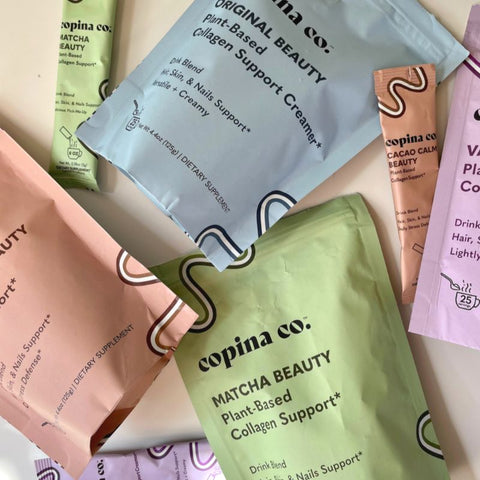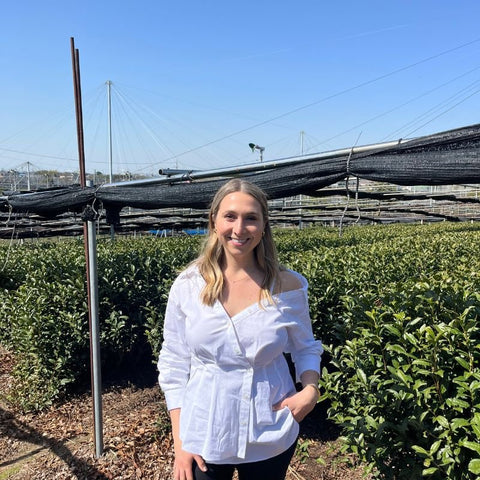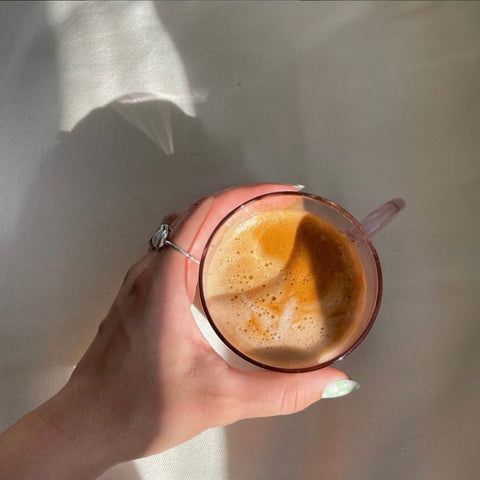We’ve all been told genetics play a role in how our skin ages, but what if we told you that skincare actually reaches much farther than your collection of moisturizers and masks? Our skin is a reflection of our internal health, which means how you treat your body and mind can affect your skin both negatively and positively.
Aging is not a dirty word - it’s a natural process. We all know we are going to age. It is a fact of life that fine lines, wrinkles, and other skin effects will occur over time. We do also know, however, that our external vibrance is a reflection of our internal vibrance and that our diet and lifestyle have a direct impact on how we appear to age.
So, what is premature aging?
Premature aging is what occurs when you begin to notice signs of aging earlier than expected. This is often caused by lifestyle factors like sun damage or smoking. You might begin to look more mature than you are.
Aging is not a bad thing, but if you are beginning to notice certain skin changes in your early twenties - it might be a sign that your lifestyle could be affecting your health. Things like what you eat, drink, or how much sleep you are getting can play a huge role in both skin and overall health.
Why You Experience Premature Aging
Overall, our bodies usually begin to produce less collagen in our 20s. Many people say that you begin to see signs of aging in your 30s or 40s, but often they can be seen through the 20s due to lifestyle choices or genetics.
See, collagen is an essential protein in the body, making up around 30% and 75% of the protein in your skin. When you enter your middle the to late 20s that amount of collagen begins to decline and people going through menopause lose a significant amount of collagen in the first 5 years. Around the age of 25 is when most people’s natural collagen production begins to slow down. At the age that you go through menopause is when collagen production really begins to diminish. There are also lifestyle choices that can affect the body’s production of collagen that can affect an individual.
Lifestyle Factors that Cause Premature Aging
- Stress: having high amounts of stress that you never get a break from causes your brain to release a lot of cortisol which is a stress hormone. Cortisol actually blocks two things in your body that keep your skin vibrant and looking plump: collagen and hyaluronan synthesis.
- Sun-Exposure: overexposure (because sunlight is really important for our overall health) to sunlight can age your skin at a quicker rate than it does normally. This is due to it damaging skin cells. It also increases your risk of skin care.
- High-energy visible (HEV) and infrared light: HEV or high-energy visible light is also referred to as blue light. This can come from the sun but also from electronic devices. These can affect collagen levels and skin elasticity.
- Alcohol: If you find yourself drinking a lot this can lead to dehydration and damage to your skin over time. Alcohol does not have bad effects in moderation though.
- Lack of Sleep: not sleeping very well can affect your skin over time.
- Smoking: the toxins in nicotine can alter the cells in your body like collage and elastic fibers in your skin. This might lead to wrinkles or other signs of aging.
Obviously, premature aging is not the end of the world, but if you start to see signs of aging at an early age it might mean that your internal health could use some re-aligning. Wearing proper sun protection like a hat, sunscreen, or limiting time in intense UV indexes can be helpful for your skin but also protect you against skin cancer. Stopping smoking will help protect your lungs and body from cancer. Your skin is an important organ of your body and it speaks to us in more ways than just surface-level appearance.
If you find yourself experiencing premature aging, it is important to look at lifestyle factors that could be contributing to it instead of solely basing your skin off the products you use.
We also recommend incorporating our Plant-Based Collagen Supports for daily support of your collagen production. Using our beauty blends can help support healthy hair, skin, and nails from all-natural ingredients. They can help support your body fight signs of premature aging while you find the lifestyle that best suits a healthy and happy you. Our blends also help fight against collagen degradation, which can help you to continue to have that #CopinaCoGlow as your body naturally ages. If you are curious to find out how our products work and how long it might take for you to see results, take a look at our Consumer Survey Results.
If you are interested to learn more about your skin and health, take a peek at some of our other blog posts:










